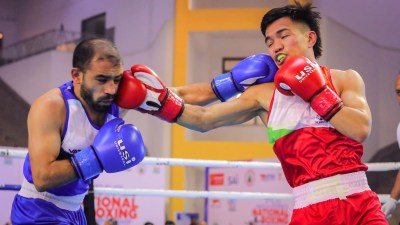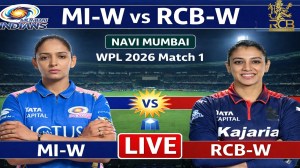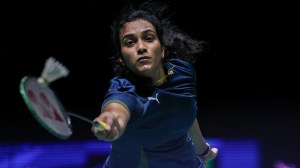Addictions redefined
What do you mean by addictions?'As a society, unfortunately, we restrict addictions' to those that are socially unacceptable, the forem...

What do you mean by addictions?8217;
As a society, unfortunately, we restrict addictions8217; to those that are socially unacceptable, the foremost among them being alcohol and drug dependence. That is because an alcoholic8217;s dependence is visible and upsets the norms of decency and decorum.
So one could be a power addict or a work addict and no one would know about it. As doctors, however, we see addiction as an emotional disease. So far, addictions were considered mental disorders. It is only recently that medical science has accepted the fact that emotions play a huge role in our well-being.
All our feelings are generated by hormones. If we feel fear or panic, it is because the adrenaline gland releases adrenaline into the blood stream. Unlike cognitive processes, emotions do not originate from the forebrain. By accepting this basic difference, we move to the next premise on addictions. That they stem from one8217;s feelings of inadequacy, incompetence and so on. Therefore, one need not be addicted to drugs or alcohol alone. One can be addicted to power; the need to feel powerful so as to compensate for the feelings of inadequacy.
What are the characteristics of an addiction?
Much like the definition of Alcoholics Anonymous AA, we also believe that for a habit to be classified as an addiction, it must have five characteristics. The disease must be existing for a long time and is classified as a chronic one, the habit must be compulsive, progressive in time, self-destructive harmful to the body and the addict8217;s family must also be affected.
I have had cases of people being addicted to sugar, or even sex. There was this 14-year-old child who could not eat a meal without sugar. She8217;d have sugar and chappati for breakfast, lunch and dinner. She8217;d throw a fit if the meal ended without a mithai. So much sugar in the body made her hyperactive. She just could not sit still for more than 30 seconds, nor concentrate on her studies. Her parents took her to a psychiatrist, who advised removal of sugar from the diet. But then the child became desperate. Like most addicts, she stole money to feed her need. Obviously, this was an addiction and needed to be treated as one.
All addicts know that they are powerless against their object of desire, that is characteristic of them. Sadly, in our country, most food addictions go unnoticed only because they are not as visible as alcohol or drugs.
I see so many housewives who cannot help but eat between-meal snacks like chivda and chaklis. They desperately want to lose weight, have severe health problems like diabetes because of their overeating, but are powerless against food. They are obviously emotionally sick and need help. Unfortunately, no one seems to look at it this way. Only alcohol and drugs are privileged enough to be treated that way.
Of course, not all those who eat between meals are addicts. It is only when the habit satisfies the five criteria that they are termed as one.
How is your treatment of addictions different from that of a psychiatrist8217;s?
The basic difference is in the fact that we treat it as an emotional disease and not a mental one. We help addicts overcome their problems by making them admit that they are powerless when it comes to their addiction. That a spiritual awakening, among other things, would help them. So treatment follows a holistic model which includes the physio-psycho- socio-spiritual aspects of a person. To quote AA, quot;We are not mad nor bad, we are sick. To respect this is to begin to treat it.8221;
- 01
- 02
- 03
- 04
- 05































